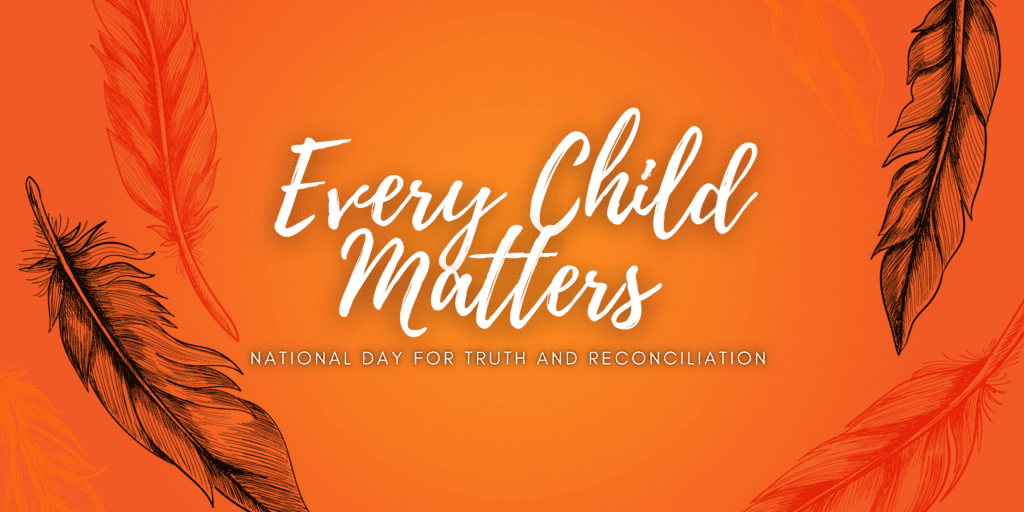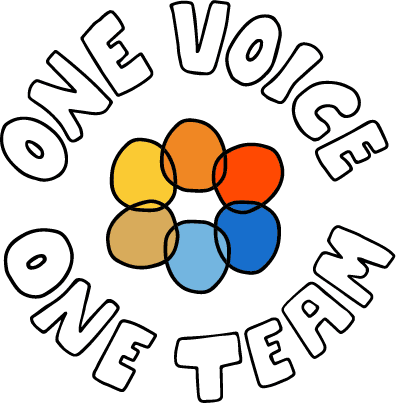How to Honor, Recognize, Acknowledge and Support the National Day for Truth and Reconciliation
Author: Roy Pogo

In December of 2015, Canadians were introduced to the 94 Truth and Reconciliation Calls to Action that were the creation of the brave testimony provided from Survivors of the Indian Residential Schools in Canada. From the first event that happened in 2010 to the final national event being hosted in Edmonton, Alberta in 2015, the Truth and Reconciliation Commission (TRC) collected 6,500 statements from survivors ranging anywhere from 10 minutes to 5 hours in length. The TRC visited over 300 communities between 2010 and 2014, which was the most extensive collection of information, lived experience, and knowledge since the Royal Commission on Aboriginal Peoples (RCAP) report that was gathered in 1996.
The TRC Calls to Action have provided Canadians with a template on how to be actionable within the workplace, communities, faith groups, service clubs, governments, educational institutions, and our personal lives. However, profound gaps exist in the education on the First Nation, Métis and Inuit experience in Canada.
A couple of years prior to the Calls to Action being released, a member of the Stswecem’c Xgat’tem First Nation, Phyllis Webstad shared her story publicly in 2013, which launched the highly educational Orange Shirt Day movement (Sept 30). The story of Orange shirt day is found within the lived experience of Phyllis arriving to the Mission in 1973 at the age of 6 years old. When she arrived at the Mission, they took away all her clothes including her brand-new orange shirt, which held significant meaning to Phyllis. She never understood why they took her orange shirt away, nor did she ever wear it again. September 30th, the date chosen, was regularly when children would be taken away from their families and sent to residential school.
This year (2021), the Canadian government designated September 30 as the National Day for Truth and Reconciliation. This response to the TRC call to action 80, which states that the Federal government will work with Indigenous people to establish a statutory day to “honor survivors, their families, and communities, and ensure that public commemoration of the history and legacy of residential schools remains a vital component of the reconciliation process” (Orange Shirt Day 2021 | Indian Residential School History and Dialogue Centre (ubc.ca)).
So????? What can you do this month to commemorate, honor, learn, engage with, build awareness and be a part of advancing reconciliation across Canada? If the pandemic has provided anything for us, it is that through technology we are able to connect to educational webinars happening across the homeland. In most local municipalities there are an array of local events occurring, just put in a quick google search, or connect with your Municipality. If there is nothing happening, the question WHY NOT? Might be a good place to start. However, there are some great opportunities nationally to learn something about the Indigenous experience in Canada, or Canada’s truthful history. Here are some recommendations:
- The Prairie Federal Council and the Canada School of Public Service is hosting a national event on the lived experiences of residential school survivors and their communities. The guest speakers will share thoughts and insights on what those experiences mean for Indigenous and non-Indigenous peoples in Canada as we continue on the journey of truth and reconciliation.
- Speakers include: Chief Dr. Wilton Littlechild, Dr. Marie Wilson, Dr. Niigan Sinclair among others.
- To register for this webcast taking place on SEPTEMBER 29 (2-4 PM ET) go to Marking the National Day for Truth and Reconciliation – CSPS (csps-efpc.gc.ca) and tell them Roy sent you 😉
- The National Centre for Truth and Reconciliation housed at the University of Manitoba is hosting 5 days of Education online via live webinars, but also available on You Tube Live with an array of speakers and sessions to choose from.
- Day 1: will provide education on Treaties, Land Claims and Unceded Territories (September 27)
- Day 2: will provide education on Language and Culture (September 28)
- Day 3: will provide education on Truth & Reconciliation (September 29)
- Day 4: will provide education on Orange Shirt Day (September 30)
- Day 5: will provide education on Knowledge Transfers and engage with Elder and Youth dialogues (October 1) with You Tube links available October 2
- For more information go to: Schedule for Truth and Reconciliation Week (General Public) – NCTR
- On September 30 the National Day for Truth and Reconciliation: The Gord Downie and Chanie Wenjack Fund are hosting a discussion on The Inaugural National Day for Truth and Reconciliation: Exploring what this means for Reconciliation in Canada.
- Speakers include: Bob Watts, Harriet Visitor, Blair Cunningham and Hillory Tenute
- They also have a list of Recommended Resources to continue learning that you can access.
- As well, you can provide funding support to the DownieWenjack Fund that provides support and advocacy for Indigenous youth and advancing reconciliACTION.
- For more information go here: National Day for Truth and Reconciliation – Teaching History & Reconciliation (downiewenjack.ca)
I believe that these opportunities to learn from incredible speakers across Canada should not be wasted. There is so much to gain from hearing the lived experiences of First Nation, Métis and Inuit Canadians. It is also an opportunity to bring in a guest speaker to your agency. As well, there are movies, podcasts, literature, or Youtube videos that you can access.
Some Books I would recommend getting you started:
- The Reconciliation Manifesto by Arthur Manuel and Grand Chief Ronald Derrickson. For those that know me or have met know that I believe this is one of the most impressive writings on Reconciliation and certainly worth a read.
- The Education of Augie Merasty by Augie Merasty with assistance by David Carpenter. Is a very important autoethnography of the lived experience of Augie.
- The North-West is our Mother by Jean Teillet. This is an excellent read when it comes to understanding the Métis experience in Canada. Her story telling is brilliant and will keep you on the edge of your seat, while you learn about the contributions of the Métis people to Canada and understand their story.
- Aboriginal Peoples and the Law by Jim Reynolds. Much of understanding where colonialism is imbedded in our systems and institutions is to grasp how the legal system has interpreted Indigenous rights/title in Canada, Jim gives a story telling, yet understandable approach to engaging with how our legal system continues to uphold colonialism in Canada.
- From the Ashes by Jesse Thistle. This is a lived experience book from a Métis/Cree perspective. Jesse experiences the intergenerational trauma, which turns into experiences with homelessness. This is a captivating true narrative that will lead you to wanting to learn more.
Some Movies I would recommend:
- Indian Horse: This movie can be watched on Netflix. It follows the story of Saul Indian Horse as he attended a residential school and through hockey was able to get out of the school at an older age. It shows the challenges of racism, struggles with addictions and eventual healing that needs to take place.
- Into the West: This six-part mini-series follows the lives of a First Nation family and a Settler family through contact/colonialism. An amazing series to watch. This can be watched on You Tube.
- Atanarjuat: This movie is in Inuktitut and is a depiction with an all Inuit cast of the Inuit people of the Arctic North through story telling. This can be purchased for 4.99 on You Tube and is rated 91% on Rotten Tomatoes.
- Rabbit Proof Fence: This movie follows three Aboriginal sisters in Australia as they enter residential school and their escape across the outback set in 1931. A great cross comparison to what happened in Canada. This is available on Amazon Prime Video.
- The Angry Inuk: This is a look at the prosecution and hatred toward seal hunters for practicing their traditional rituals. Plus, it looks at the high-profile celebrities that support anti-hinting campaigns. A very educational watch. This can be watched on Amazon Prime Video.
Roy Pogorzelski is Métis/Cree from Northern Saskatchewan with his families coming from the communities of Meadow Lake/Green Lake/and throughout the North. Roy owns his own company RWP Consulting where he educates on Equity, Diversity and Inclusion, anti-racism and Indigenous studies/inclusion and reconciliation. Roy is an Associate Facilitator with the Canadian Centre for Diversity and Inclusion (CCDI), A Board member with the Canadian Race Relations Foundation (CRRF), A Program Facilitator with One Voice One Team (OVOT), a PHD student at the University of Lethbridge where he also a Instructs in Indigenous Studies and for the Dhillon School of Business. Connect with Roy on LinkedIn @ www.linkedin.com/in/roypogo

